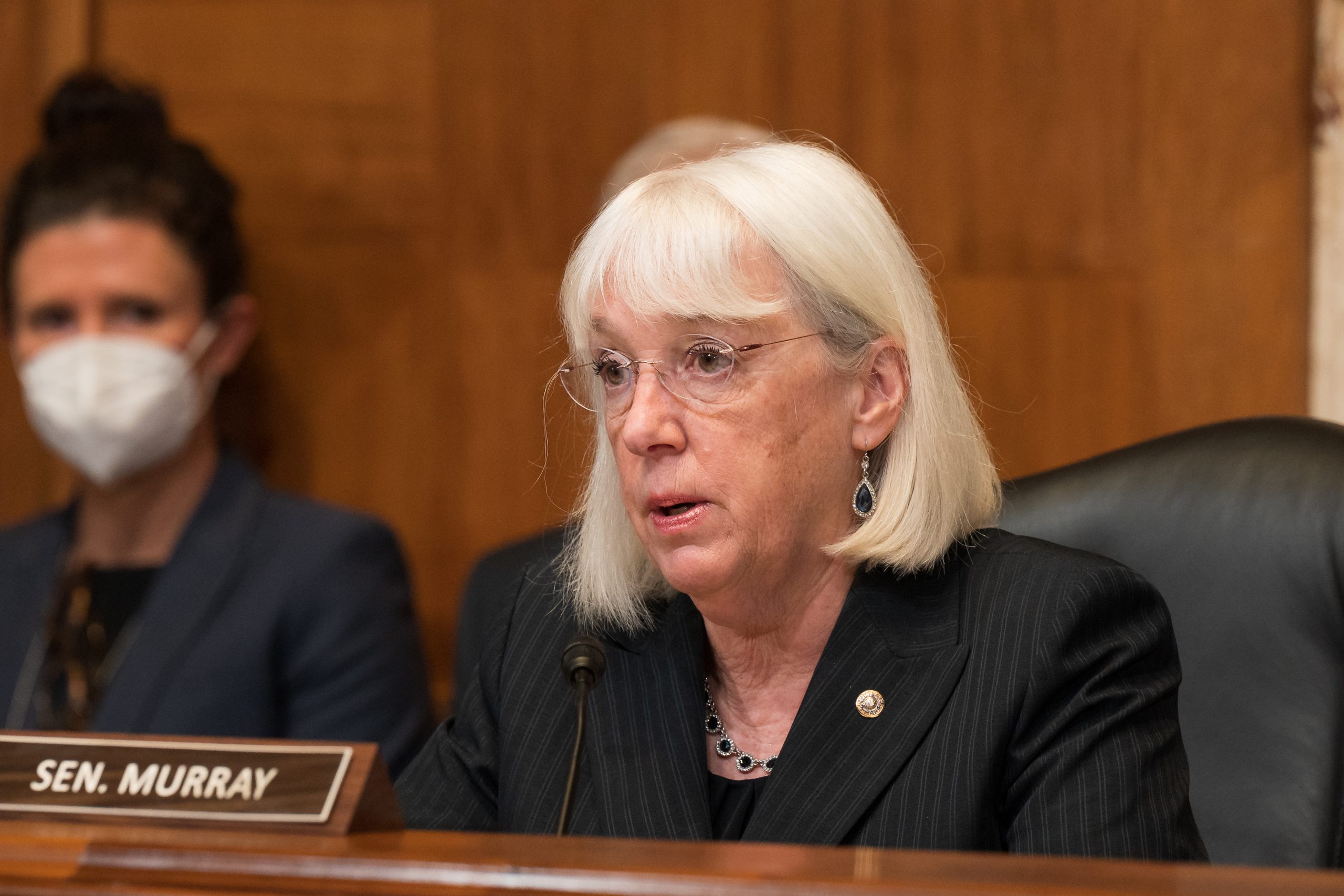Murray announces FDA has responded to her July letter about toxic metals in tampons confirming it has commissioned an independent review of the literature, and is conducting a new study on the issue
Murray: “These are products millions of women are using on any given day, so it’s important we absolutely put to rest any concerns about their safety—so I’m pleased that FDA is taking action to help us better understand the issue of metals in tampons, and I am going to keep pushing to make sure we are taking all the steps we need to keep women safe and healthy.”
Washington, DC – Today, U.S. Senator Patty Murray (D-WA), Chair of the Senate Appropriations Committee, announced the Food and Drug Administration (FDA) has responded to a letter she sent in July requesting the agency examine the findings of a recent study which found toxic metals—such as lead, arsenic, cadmium, and others—in a wide variety of tampon products, and evaluate any necessary steps to ensure the safety of tampons and menstrual products. The agency has let Senator Murray know they take the issue of tampon safety seriously, and they are working on a more detailed response to the questions from her letter in addition to two related studies.
“For too long, women’s health has been overlooked and understudied—ever since I came to Congress, making sure that women’s health was a federal priority has been important to me. These are products millions of women are using on any given day, so it’s important we absolutely put to rest any concerns about their safety—so I’m pleased that FDA is taking action to help us better understand the issue of metals in tampons, and I am going to keep pushing to make sure we are taking all the steps we need to keep women safe and healthy,” said Senator Murray.
Following Senator Murray’s oversight, FDA has initiated an expert, independent review of the literature on the health effects of metals in tampons, and an internal lab study at FDA to look at metals found in tampons and how they get released under normal use.
- FDA has commissioned an independent contractor to undertake a thorough literature review to assess any possible links between tampon use and adverse health effects. This review will address the following questions:
- What does the literature describe regarding prevalence, levels, and types of biomarkers found in individuals using vaginal tampons? How does the prevalence/level/type of biomarker differ from normal/expected values?
- What health outcomes are described in the literature associated with vaginal tampon use (not including toxic shock syndrome)? How are the frequencies of these health outcomes reportedly differing from the general population?
- What does the literature describe in terms of laboratory measures from testing of vaginal tampons (levels of materials, prevalence, etc.)?
- The FDA’ s Center for Devices and Radiological Health Office of Science and Engineering Laboratories has also initiated a study to determine the proportion of metals that may be released by tampons in normal use.
- The results will be used to conduct a more precise risk analysis which will assess the risk of metal exposure to tampon users. The FDA study will also allow for appropriate statistics to be conducted by using sufficient samples, which analysis was not possible with the Shearston et al study design.
- FDA will use this information to make a determination of any possible health issues.
Senator Murray has a long history of demanding accountability and careful oversight when it comes to the safety of products women and families use every day. Recently, Senator Murray passed legislation giving FDA new authority to, for the first time ever, regulate the safety of cosmetic products and force a recall when necessary, and as Senate Appropriations Chair she successfully fought to secure funding for this important work. Senator Murray has also previously pressed FDA and industry for answers and action regarding asbestos in children’s make up kits, demanded answers from Johnson & Johnson regarding asbestos found in baby powder, and was also a leading voice in holding FDA accountable and pushing for solutions following the infant formula contamination and shortage crisis in 2022.
Senator Murray has been a champion of improving and expanding access to women’s health care throughout her career. Senator Murray was the lead Democratic negotiator of the bipartisan 21st Century Cures Act, which delivered a major federal investment to boost NIH research, among many other investments—as the top ranking Democrat on the Senate Health Committee, Murray specifically pushed to include policies that would require NIH to improve inclusion of diverse populations, especially women, in research and to address gaps in knowledge around safe and effective therapies for pregnant and breastfeeding women.
###


